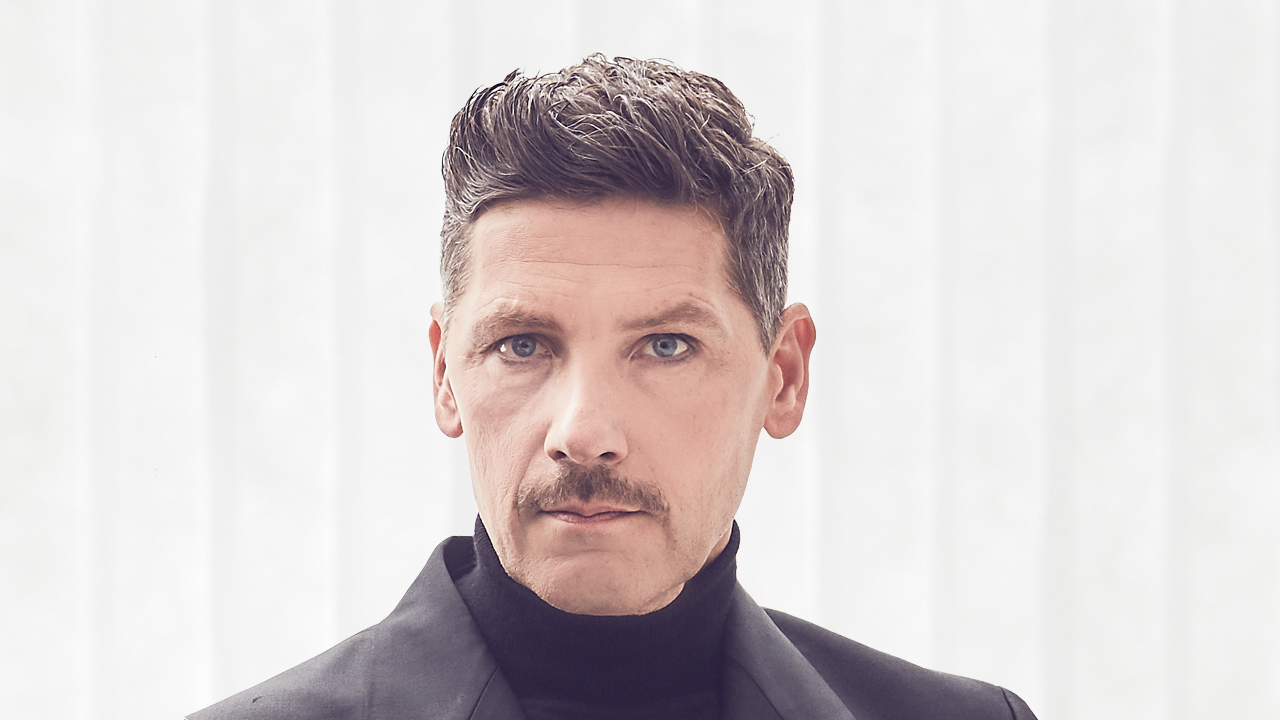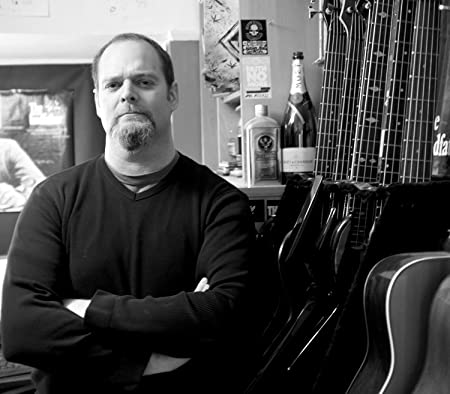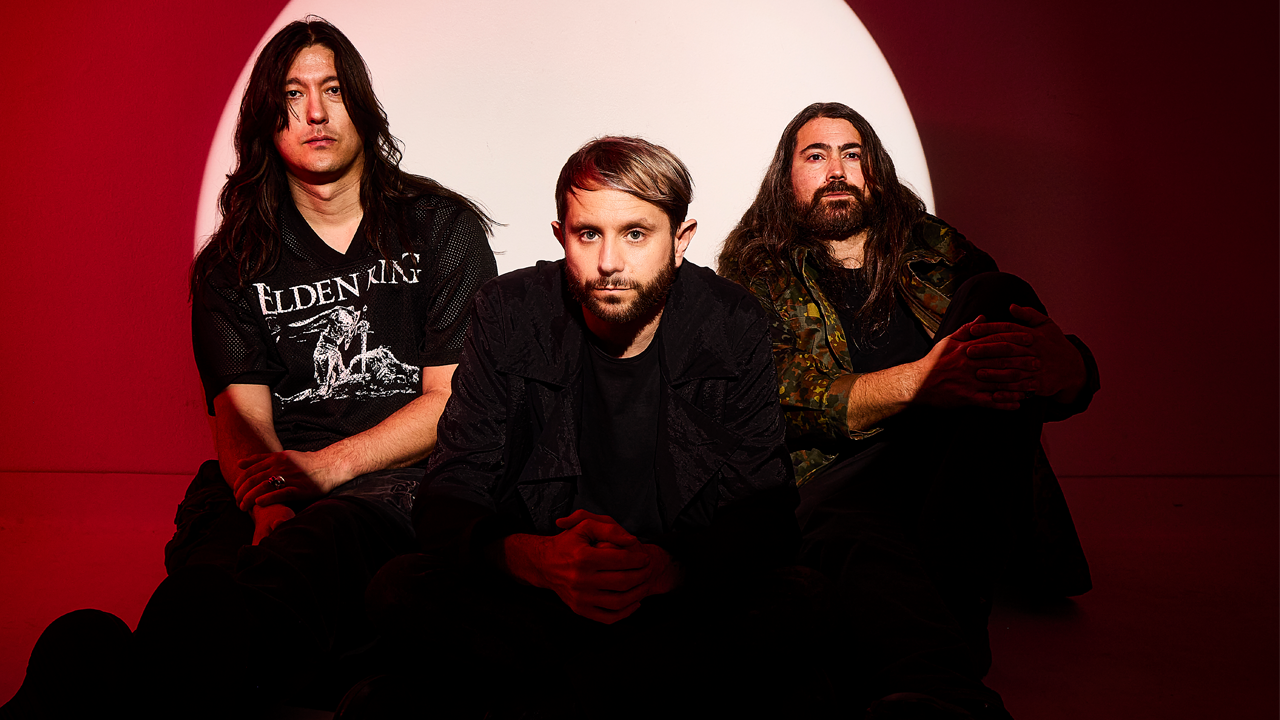Rammstein’s Christoph ‘Doom’ Schneider: My Life Story
An audience with enigmatic Rammstein drummer Christoph ‘Doom’ Schneider

Think of Rammstein and the first thing that springs to mind is Teutonic Iron Man Till Lindemann shooting flames and strange bodily fluids from various orifices, while a gang of poker-faced Germans crunch out weapons-grade industrial metal behind him as a futuristic Ruhr Valley power plant explodes into the night sky.
Someone has to hold this circus together, and that someone is drummer Christoph ‘Doom’ Schneider, whose often overlooked and vastly under-rated powerhouse rhythms are the engine that drives this armour-plated behemoth. But how much do we actually know about this enigmatic man at the back? Not much. Which is why we sat him down to look back over a career that has taken him from behind the old Iron Curtain to the world.

Where and when were you born?
“I was born in 1966 in Pankow, a suburb of Berlin. It says on Wikipedia that I have six brothers and sisters, but this isn’t true: I have just one sister, who is two years younger than me. It also says that one of my ‘brothers’ gave me my first drumkit, which is also not true.”
Is it true that your first instrument was the trumpet?
“That is true! My parents wanted me to learn an instrument, so they sent me to a special school which was connected to a pioneering Socialist orchestra. They offered me the choice of trumpet, clarinet or trombone, so I chose the one I could play most easily. I had a huge talent for it: they sent me to the lessons and I could play my first scale in an hour. After a year I got into the orchestra and we started playing concerts. They always told me that I could have made a career out of it, which didn’t seem like a bad idea to me.”
- Rammstein: The birth of a legend
- Rammstein Deutschland: the song and video explained
- Rammstein’s new album: your ultimate track-by-track guide
- The top 10 best Rammstein videos
How did you get into playing drums?
Sign up below to get the latest from Metal Hammer, plus exclusive special offers, direct to your inbox!
“When I was in the orchestra I became very interested in the drum section, which was huge: as well as timpani and snare drums, there was a guy who played a whole kit when we played modern music. I was always looking over my shoulder at him because the drums were so much cooler, and I used to go home and practise playing drums, but I didn’t even have sticks. You know when they shoot a firework in the air and there is a bit of wood left behind? I used to use those to hit a piece of paper, ha ha! So I told my parents that I wanted to study drums from now on, and they didn’t like the idea in the beginning. They’re both from the classical world – my father was an opera director and my mother was a music teacher – and they had no connection to rock music.”
Did they finally accept it in the end?
“I continued building up my drumkit with tin cans and buckets, and then when I was old enough – about 14 – I bought my first real drumkit. My family had to accept it then, and they let me rehearse and I took lessons. Later on I wanted to study drums, because my parents wanted me to study something, so I applied to a music school where my father became a professor in later years. He thought it wouldn’t be a problem to get me in there, but I failed the test! My drumming was OK, but you had to have other skills too, like playing the piano or reading music and singing. I just had to keep going as a self-taught musician and playing the music I liked.”
What was it like being a musician in East Berlin before the wall came down in 1989?
“In the East, we had professional bands which had all studied music and had official permission to play music. They were allowed to work as professionals and they had the right to charge money for their shows. If you were an amateur, you had to be classified at a certain level. There were three levels, and I reached the first one! I had a certificate which allowed me to charge four Deutschmarks (£1.30) per hour when I played a concert. Without this certificate it was illegal to play gigs, and you weren’t allowed to make contact with promoters without one. People accepted this because they had to. To get your certificate you had to play in front of a commission, like a jury, who decided if you had the right songs: you were only allowed to play 40 per cent cover versions in your set, the rest had to be your own music. Actually it wasn’t that bad an idea, because bands had to come up with their own stuff, and so there were a lot of interesting bands at that time.”
Your first proper band was Die Firma (The Firm). What were they like?
“Die Firma was like a new wave punk band. The style was a little dark, with gothic influences. We had lyrics that protested against the system. This was not permitted, of course – we were an underground band. All the other Rammstein guys were in underground bands too. We used to play in small clubs with all kinds of fans: freaks, goths, punks. The government had their people everywhere, though: Secret Service spies. What was funny was that I couldn’t imagine any harder band than mine at the time, and we had two people actually in the band who were spies – the singer and the keyboard player! Ha ha! Incredible. They weren’t professionals: they were hired spies who received a little payment and every once in a while had to report about the music scene.”
Rammstein’s first breakthrough came with the Berlin Metrobeat contest in 1994…
“This was a competition in the 90s where young bands had the chance to send a demo tape to the Department Of Culture in Berlin, who picked out bands that they liked. You could win a recording session in a professional studio, and we won it. We went into the studio and recorded the first four Rammstein songs. The tape got a lot of attention from quite a few record companies, but we waited a while until we had a manager who knew more people in the industry. We were happy that we waited, rather than signing to a small indie label, because major labels got interested later on.”

Rammstein have had the same line-up since the start. How is this possible?
“We’re all very good friends and there’s been no reason for anyone to leave. But when there are six people in a band, it’s not easy to make decisions, because everyone has an opinion. The older people get and the more opinions they have, the more difficult it gets! When we were younger it was very easy to make decisions because we all wanted the same thing: we wanted to play and we wanted to get attention and make records.”
You’ve been a stadium act for a while now. Is it fun at the top?
“We’re a quite successful band in many countries, but you get used to this and you get more picky. Before we used to say, ‘Yeah yeah yeah! We’re going to Turkey! I’ve never been there before!’ but now people say, ‘Oh, let’s stay at home – does it make economic sense to go there?’ We try to please everybody in the band: we try to respect what everybody wants. If you ignore one guy’s opinions for long enough, one day that guy might leave because he wouldn’t feel understood.”
Rammstein guitarist Richard Kruspe described the band as being therapeutic. Do you agree with him?
“I completely agree. It’s totally true. If you hang around with the same guys for a long time, it’s like therapy for life. You have to learn how to be in a crew and to get along with all the other people, and also to learn how to give way sometimes. If you want something really strongly but you don’t have anyone else in the band who wants the same thing, then you have to give up that idea, otherwise you’ll get on everybody’s nerves and you’ll make it difficult for yourself. I always want to make things better, and do new things.”
- Best headphones for vinyl: bring the best in your wax
- Best headphones under £100: budget true wireless, Bluetooth and noise cancelling
- Best music streaming services: how do Spotify, TIDAL, Apple Music and others compare?
- Own your idols with the best Funko Pop! Rocks vinyl figures
Is it true that your nickname ‘Doom’ comes from the video game of the same name?
“Yes. This story is really ridiculous: I needed a name for the German copyright agency, and there were too many Christoph Schneiders at that time so I needed a different name. Paul Landers said, ‘How about Doom?’ because we liked that game, and I said, ‘I don’t fucking care – OK!’”
Rumour has it that the six dildos in the Liebe Ist Für Alle Da box set are moulded on the Rammstein members’ cocks. True?
“The original idea was to do it like that, but there were a few complications. Imagine doing it: you would have to stay stiff the whole time! It would be different if you were doing it with your girl, or something. None of us actually did it, but some of the guys wanted to. I found the idea pretty stupid.”
Was that really your todger in the video for Pussy, or did you use a body double?
“We used doubles. Sorry to disappoint you, but on the other hand I’m quite glad it wasn’t me! Ha ha ha!”
Published in Metal Hammer #207
Joel McIver is a British author. The best-known of his 25 books to date is the bestselling Justice For All: The Truth About Metallica, first published in 2004 and appearing in nine languages since then. McIver's other works include biographies of Black Sabbath, Slayer, Ice Cube and Queens Of The Stone Age. His writing also appears in newspapers and magazines such as The Guardian, Metal Hammer, Classic Rock and Rolling Stone, and he is a regular guest on music-related BBC and commercial radio.

